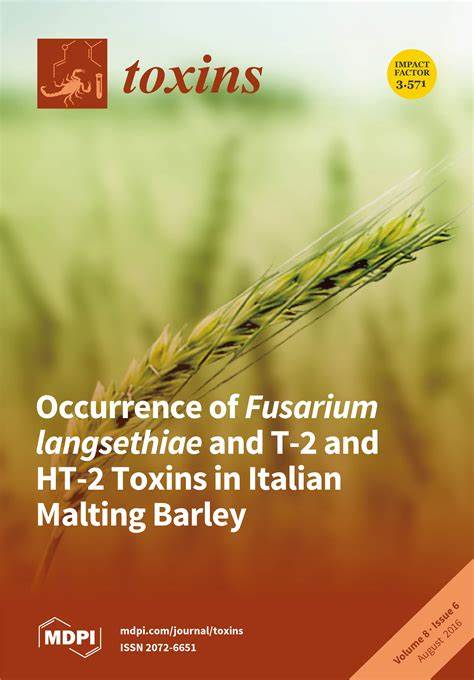针对表皮生长因子受体和uPAR的双特异性配体靶向毒素eBAT在小鼠和临床犬模型中的毒性概况
IF 3.9
3区 医学
Q2 FOOD SCIENCE & TECHNOLOGY
引用次数: 0
摘要
表皮生长因子受体靶向疗法疗效显著,但毒性也很常见,而且可能很严重。尿激酶型纤溶酶原激活物受体(uPAR)靶向药物才刚刚出现,因此其疗效和毒性都尚未完全确定。重组 eBAT 是将细胞因子 EGF 和 uPA 与截短的假单胞菌毒素结合在同一单链分子上而制成的。其目的是在肿瘤微环境中同时靶向肿瘤及其血管。在之前对小鼠和狗进行的研究中,这种药物被证明是有效的。在此,我们报告了 eBAT 在正常野生型小鼠、uPAR 基因敲除小鼠、免疫缺陷小鼠和免疫缺陷肿瘤小鼠以及患有自发性肉瘤的狗体内的安全性。在免疫功能健全的小鼠、肿瘤携带小鼠、uPAR基因敲除小鼠和接受物种优化eBAT的小鼠中,毒性都很轻微,而且是自限性的。同样,在患有危及生命的肉瘤的狗身上,服用具有生物活性的剂量后,eBAT的耐受性也很好。在接受较高剂量治疗的小鼠中,eBAT 与剂量依赖性肝损伤相关,包括门静脉胆管增生、卵圆形细胞增殖、淋巴浆细胞炎症、肝细胞周围微囊变、出血、坏死和细胞凋亡。这些结果支持继续将 eBAT 作为肉瘤和其他癌症患者的治疗药物进行临床开发。本文章由计算机程序翻译,如有差异,请以英文原文为准。
Toxicity Profile of eBAT, a Bispecific Ligand-Targeted Toxin Directed to EGFR and uPAR, in Mice and a Clinical Dog Model
EGFR-targeted therapies are efficacious, but toxicity is common and can be severe. Urokinase type plasminogen activator receptor (uPAR)-targeted drugs are only emerging, so neither their efficacy nor toxicity is fully established. Recombinant eBAT was created by combining cytokines EGF and uPA on the same single-chain molecule with truncated Pseudomonas toxin. Its purpose was to simultaneously target tumors and their vasculature in the tumor microenvironment. In prior studies on mice and dogs, the drug proved efficacious. Here, we report the safety of eBAT in normal wildtype, uPAR knockout, and immunoreplete and immunodeficient tumor-bearing mice, as well as in dogs with spontaneous sarcoma that more closely mirror human cancer onset. In immunocompetent mice, tumor-bearing mice, uPAR knockout mice, and mice receiving species-optimized eBAT, toxicities were mild and self-limiting. Likewise, in dogs with life-threatening sarcoma given dosages found to be biologically active, eBAT was well tolerated. In mice receiving higher doses, eBAT was associated with dose-dependent evidence of liver injury, including portal biliary hyperplasia, oval cell proliferation, lymphoplasmacytic inflammation, periportal hepatocellular microvesicular change, hemorrhage, necrosis, and apoptosis. The results support continuing the clinical development of eBAT as a therapeutic agent for individuals with sarcoma and other cancers.
求助全文
通过发布文献求助,成功后即可免费获取论文全文。
去求助
来源期刊

Toxins
TOXICOLOGY-
CiteScore
7.50
自引率
16.70%
发文量
765
审稿时长
16.24 days
期刊介绍:
Toxins (ISSN 2072-6651) is an international, peer-reviewed open access journal which provides an advanced forum for studies related to toxins and toxinology. It publishes reviews, regular research papers and short communications. Our aim is to encourage scientists to publish their experimental and theoretical results in as much detail as possible. There is no restriction on the length of the papers. The full experimental details must be provided so that the results can be reproduced.
 求助内容:
求助内容: 应助结果提醒方式:
应助结果提醒方式:


